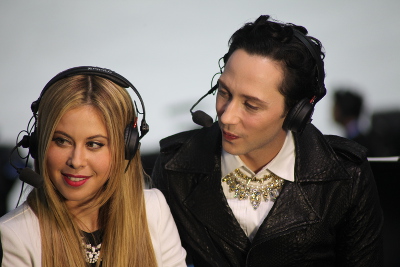
Photo by Andi Miah.
The history and ongoing engagement of lesbian, gay, bisexual, transgender, and queer (LGBTQ) Americans in sport and leisure cultures is varied and diverse, and often reflects the ebbs and flows of openness to gender and sexual diversity in mainstream culture.[1] Though interrelated and shaped by similar cultural forces, institutional sports (professional and semiprofessional leagues, school-based athletics, and community sports programs) and leisure have very different places in LGBTQ life. LGBTQ athletes and sport participants frequently sought a place in mainstream athletic cultures, and occasionally created their own. Particularly in professional and top-level sports, LGBTQ athletes have struggled with being publicly gay and/or transgender, and how that fit into mainstream sport culture. This has resulted in very minimal historical presence of out LGBTQ athletes, as the majority of examples happened since the late 1980s. Meanwhile in non-sport leisure cultures, LGBTQ individuals and communities often formed their own unique forms of leisure and entertainment outside the mainstream gaze. As such, these two histories will be addressed individually and through specific examples that highlight the ways in which LGBTQ identity shaped individual experiences and community cultures. Read more » [PDF 2.7 MB]
The views and conclusions contained in the essays are those of the authors and should not be interpreted as representing the opinions or policies of the U.S. Government. Mention of trade names or commercial products does not constitute their endorsement by the U.S. Government.
Part of a series of articles titled LGBTQ America: A Theme Study of Lesbian, Gay, Bisexual, Transgender, and Queer History.
Last updated: August 11, 2017
